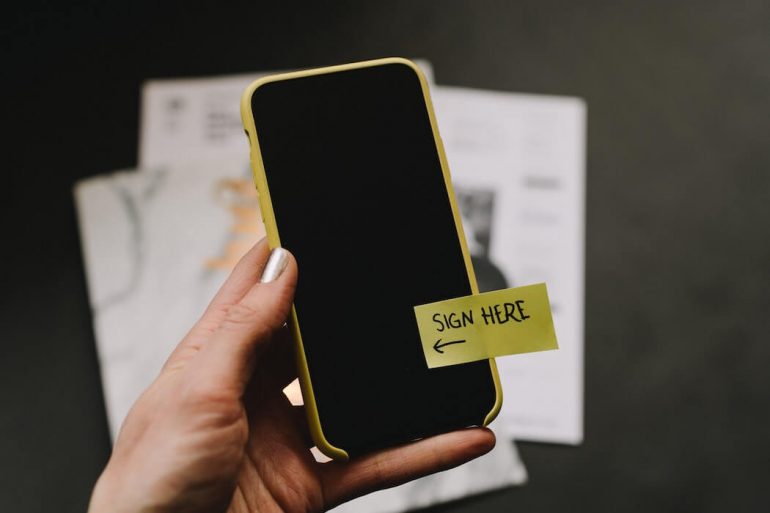The COVID-19 pandemic has affected every aspect of our lives, from how we spend our time, to how we run our business, to how we take care of daily tasks.
With most of Canada’s population either social distancing, self-isolating, or quarantined, taking care of tasks that typically require an in-person or offline element have become increasingly difficult or even impossible, and it has highlighted the need for legal and regulatory change in order to support more online processes, primarily digital signatures.
The government is also recognizing the need for digital signatures during COVID-19.
As the CEO of estate planning startup Willful, which helps Canadians create wills and Power of Attorney (POA) documents online, the limitations in our business have always had nothing to do with technology, and everything to do with the law.
In 2020, you can buy a home using a digital signature, but you still have to print and sign your will/POA – for good reason, many would argue, since the purpose of witnesses to your will is to ensure an individual created those legal documents in sound mind without duress. That’s hard to do with Docusign since it’s easy to forge a signature – which is the larger issue with any digital signature, whether it’s on a will, contract, or any other legal documents. How do you verify that a specific person is really signing a specific document online?
The United States (US) is ahead of Canada when it comes to adopting digital signatures on wills, as profiled in a New York Times article last fall. Nonprofit organization Uniform Law Commission drafted the Uniform Electronic Wills Act, which can act as a model for individual states to adopt. Several states including Nevada and Indiana already allow e-signatures, with more expected to follow suit in 2020.
Trust & Will, a partner of ours based out of San Diego, executed the first digital will in the US in Nevada in January 2019.
Digital signatures are important not just for wills; think of any document that needs to be notarized, including real estate transaction documents or auto insurance claims. Right now going in-person to a notary is difficult if not impossible.
The US allows digital notarization of wills and other documents through Notarize, a Washington, DC-based company that has a distributed team of notaries who notarize through a series of steps. Users upload or take a photo of the document that needs to be notarized, enter the last four digits of their social security number, answer five identity verification questions within two minutes, and submit a photo of their photo ID. After being verified, users connect with a notary via video and they finish the process by adding their signature and stamp.
The Law Society of Ontario issued guidance about virtual commissioning for the first time.
Notarize’s CEO Patrick Kinsel said on Twitter that COVID-19 has led to an explosion in their business, with 30 percent growth per day. He said they’re hiring hundreds of notaries across the country to meet demand.
Canadian companies like Vaultie are tackling identity verification for digital signatures by using a verified photo tied to your government-issued photo ID. Vaultie launched in January, and CEO Meyer Mechanic said the service is used for everything from digital notarization to rental agreements to legal documents. Due to the spread of COVID-19, they’ve seen an increase in demand, and the Law Society of Ontario issued guidance about virtual commissioning for the first time. The Law Society still advises that in-person is best practice, but it’s a step in the right direction.
“Documents signed with Vaultie are tied to a verified selfie using compliance grade facial recognition and government identification testing. Anchored on a blockchain, documents are tamper-proof and instantly verifiable by any third party,” Mechanic said in an email. “Using this method we can provide a higher level of fraud prevention by linking a physical person (instead of their account) to a digital document.”
The government is also recognizing the need for digital signatures during COVID-19. In the Economic Response Plan unveiled last week, the CRA announced it would be recognizing digital signatures as having met the signature requirements of the Income Tax Act, specifically on T183 or T183CORP. The CRA state that it’s a temporary measure due to COVID-19, but this may also lead to lasting change.
While COVID-19 will have a lot of negative lasting effects on our lives, one positive change it could inspire is the adoption by lawmakers and regulatory bodies of digital signatures. Whether it’s because we have to or because we want to, Canadians should have the ability to easily sign documents online.
Image source Unsplash. Photo by Kelly Sikkema


